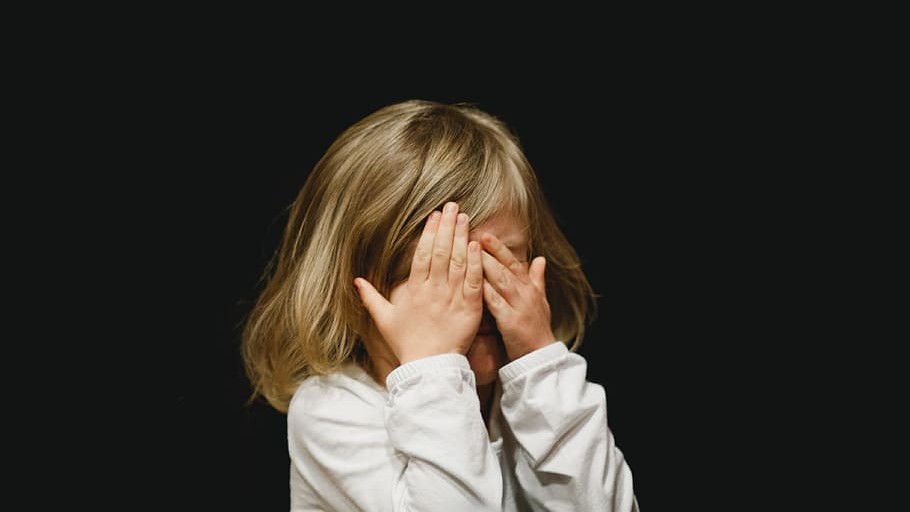Professor Thinks Children Are Partially To Blame In Abuse Cases
A professor and Director of Crimes Against Children suggested that victims are partially to blame in cases involving sexual predators.

The sexualization of children and minors in modern society has become a serious issue. What was once considered mature content is now easily distributed to teens, preteens, and even prepubescent children. Sexual predators are being caught in the public education system at alarming rates, and the rate of child sexual abuse is so alarming that states are now having to ban sexual talk from classrooms. Now a college professor is coming under fire for implying that victims of child sexual abuse are partially to blame in cases involving sexual predators.
On March 23, Professor David Finkelhor, the Director of the Crimes Against Children Research Center at the University of New Hampshire and professor at the college engaged in a discussion about minors’ “voluntary participation,” in “sex crimes against children.” He hypothesized that children may be “enthusiastically involved,” and therefore prevention is impossible if sexual predators are treated as predatory individuals deserving of punishment for their crimes. This point of view has been harshly criticized as victim-blaming and decried by many parents.
Finkelhor went further to theorize that because there is an age of consent, minors are confused when a 16-year-old minor has sex with their older partner because that is technically considered illegal. His concern over statutory rape was downplayed with the philosophy that in many cases these are 16-year-olds and 17-year-olds who actively pursue adults without any coercion. Finkelhor was careful to use terms like restrictions, juvenile, young people, sexual activity, relationship, and sex crimes. He avoided much more serious language that more accurately describes what he is defining. He failed to use words like grooming, consent, children, middle-schoolers, teenagers, molestation, sexual assault, sexual abuse, rape, sodomy, child rapist, pedophile, and sexual predators.
This soft-language approach to discussing serious, damaging acts is exactly why parents and some lawmakers are fed up with the public education system and college academics. In every area of the United States there is a clear age of consent, to pretend as if this concept is too confusing for children to understand, while also proclaiming that children need to be more educated on the topic is an approach that has been used for years and has yet to protect more children from the effects of grooming and child sexual abuse. If anything, the more sexual education expands to teach children as young as four years old about sexuality, the more child molestation has occurred because many of the teaching tactics themselves are being scrutinized as grooming. So many states have seen a significant increase in child sex abuse that the leader of Arizona’s Child Sex Abuse Taskforce said they were “drowning” in cases as of 2019, and the National Center for Missing and Exploited Children experienced their highest number of sexual predators reports received in 2020.
Even corporations like Disney have come under fire for playing fast and loose with children’s content. They are being blamed for allegedly working to actively send out messages that could cause children to question their own biology. This children’s company has also had numerous sexual predators working within their ranks, so much so that for years now Disney employees have been convicted of serious child sex crimes again and again.
Yet professors like David Finlehor believe that we need more “talks” and “discussions” about sex and adult relationships instead of harsher punishments for convicted child predators, and stronger boundaries between what is appropriate non-secular material for minors and what is mature content that should not be marketed or offered to young students. Sexual predators have not been deterred by talks before, and children have now been actively indoctrinated into exploring their sexuality from kindergarten and beyond. Whether their abusers groom them or not, they are being groomed by progressive sex-ed and even major media outlets — which are difficult to avoid.
When a grown adult engages in sexual activity with a minor, they are breaking the law and damaging a young person’s physical, mental, and emotional wellness, whether the child knows it or not. It is expressly because children are not fully developed enough to make those kinds of adult decisions for themselves that there is an age of consent. Whether coercion, grooming, or manipulation occurs or not, child sexual abuse is a crime because of the life-long lasting effects that the victim will eventually realize even if they don’t within the short term. To blame the children, under any circumstances, for what sexual predators do, is in itself a predatory act because it shifts the blame from the adult who is making a conscious decision, to a child whose brain and body are not fully formed yet.



